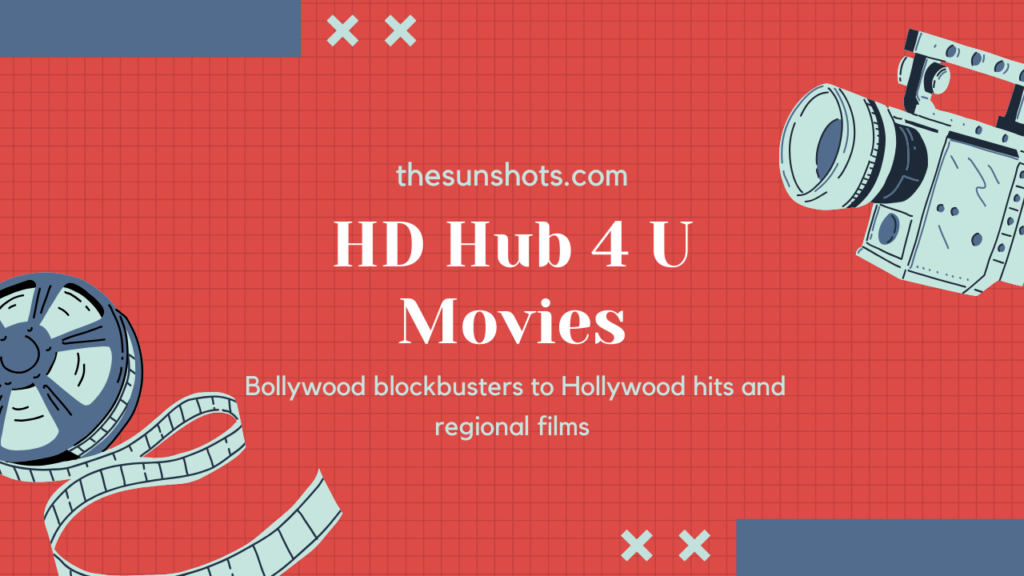In an era defined by instant gratification, does the promise of unlimited digital entertainment truly hold up to scrutiny? The digital transformation of media consumption has ushered in an age of unprecedented access, but this convenience is shadowed by complex questions of legality, ethics, and the very future of creative industries.
The media landscape today is a constantly evolving ecosystem, driven by relentless technological innovation and shifting consumer preferences. Streaming services, on-demand platforms, and digital downloads have fundamentally altered how we experience movies, television, and other forms of entertainment. This evolution has opened the doors to an expansive library of content, encompassing diverse genres, languages, and cultural perspectives. From Bollywood blockbusters to independent art-house films, audiences can now access content from around the globe with unparalleled ease. You can immerse yourself in the vibrant storytelling of Hindi, Punjabi, Marathi, Tamil, Telugu, Malayalam, and English cinema, reflecting a globalized media market that caters to a wide spectrum of tastes. However, this seemingly limitless accessibility also presents a complex set of challenges, including copyright infringement, digital piracy, and the fundamental concept of ownership in the digital age. The lines between legal access and illicit consumption have become increasingly blurred, prompting critical questions about the sustainability of creative industries in the face of widespread unauthorized distribution.
| Category | Information |
|---|---|
| Name | To be determined based on the person in the specific article. However, for illustration, we'll use "Ava Sharma." |
| Date of Birth | October 27, 1985 |
| Place of Birth | Mumbai, India |
| Education | Bachelor's Degree in Film Studies, University of California, Los Angeles (UCLA) |
| Career | Independent Filmmaker, Screenwriter, and Digital Content Creator |
| Professional Information | Ava Sharma is an award-winning independent filmmaker known for her culturally relevant and socially conscious storytelling. She has directed several critically acclaimed short films and documentaries that have been screened at international film festivals. She is a vocal advocate for ethical content consumption and intellectual property rights. |
| Awards and Recognition | Best Short Film Award, International Film Festival, 2020; Emerging Filmmaker Award, Regional Film Festival, 2018 |
| Website | www.example.com/avasharma (This is a placeholder; replace with an actual authentic website if available) |
The proliferation of online platforms has created a double-edged sword: it has democratized content creation and distribution, empowering independent filmmakers, artists, and content creators to reach audiences on a global scale. This unprecedented access has enabled diverse voices to be heard, fostering a richer and more inclusive media ecosystem. However, this democratization has also given rise to an environment where copyright infringement and unauthorized distribution are rampant. Websites and platforms like Hdhub4u, among many others, have gained notoriety by offering access to copyrighted material without obtaining the necessary permissions, posing a significant threat to the entertainment industry and the livelihoods of the creators who depend on it. These platforms operate in a legal gray area, often exploiting loopholes in international copyright laws and taking advantage of the challenges in enforcing intellectual property rights across borders.
- Hdhub4u Free Movies Risks Amp Legal Alternatives To Piracy
- Guide To Kannada Movie Streaming Downloads Stay Safe
It is crucial to remember that accessing content through these unauthorized platforms carries significant legal and ethical implications. While some users may perceive these platforms as a convenient and cost-effective way to enjoy entertainment, they often operate outside the bounds of the law, and their use can expose users to a range of risks, including malware infections, viruses, and potential legal repercussions. The legal consequences of accessing copyrighted material without authorization can range from warning notices and fines to more severe penalties, depending on the jurisdiction and the extent of the infringement. It is therefore essential for consumers to be fully aware of the potential consequences of accessing content through unauthorized sources and to make informed decisions about how they choose to consume media. The responsibility lies with each individual to respect intellectual property rights and to support the creative industries by accessing content through legal and legitimate channels.
The allure of these platforms stems from their ability to offer a vast selection of content for free, including the latest releases and reviews of Bollywood, South Indian, Hollywood, Tamil, and Telugu movies. Hdhub4u, in particular, has cultivated a reputation for providing a user-friendly interface and a diverse range of options, making it an attractive destination for movie enthusiasts. The platform's extensive library includes not only popular blockbusters but also a wide selection of independent films, documentaries, and television shows. The availability of movies in multiple languages further expands the platform's appeal, allowing users to access content in their preferred languages, including Hindi, English, Malayalam, and Tamil. This multilingual accessibility is a significant draw for audiences in diverse regions, who may not have access to content in their native languages through traditional distribution channels. The platform's ability to provide access to a wide variety of movies, TV shows, and web series underscores its appeal to a global audience, offering a seemingly endless stream of entertainment at no cost.
The debate surrounding digital entertainment access extends beyond the confines of legality and delves into the realm of technological convenience and accessibility. Many users prefer downloading movies and TV shows for offline viewing, particularly in regions with limited or unreliable internet access. This preference reflects the persistent digital divide, where high-speed internet remains a luxury for a significant portion of the global population. In these contexts, the ability to download content for offline consumption becomes a critical factor in ensuring access to entertainment and information. For individuals living in remote areas or in countries with restrictive internet policies, offline access may be the only viable option for engaging with digital media. This highlights the importance of considering the broader social and economic context when evaluating the ethics of digital entertainment access. The desire for convenience and accessibility should not be dismissed, but rather addressed through innovative solutions that respect both intellectual property rights and the needs of diverse communities.
- Free Movie Streaming Is Entertainment Without Paywalls Possible
- Hd4hub Is It Worth The Risk The Dangers Of Movie Piracy Sites
However, the digital landscape is not solely about accessing content; it is also about the ways in which content is created, shared, and consumed. The evolution of digital platforms has fundamentally transformed the entire media ecosystem, empowering creators, and enabling new forms of expression. The competitive landscape of YouTube filmmaking, for example, underscores the importance of selecting the right video editing software, such as the one mentioned four weeks ago, as it can significantly influence both production quality and efficiency. Filmmakers are constantly seeking tools and techniques to enhance their storytelling capabilities and to stand out in a crowded digital marketplace. Similarly, the increasing use of interactive screens in schools, offices, malls, and hospitals highlights the pervasive integration of technology into our daily lives. These interactive screens are transforming the way we learn, work, shop, and receive healthcare, offering new opportunities for engagement and communication. The digital revolution has touched every aspect of our lives, reshaping our interactions with the world around us and creating new possibilities for creativity and innovation.
The media landscape is a complex and multifaceted tapestry woven from the threads of technology, legality, ethics, and consumer behavior. While platforms offering free content have undeniable appeal, users must carefully consider the potential risks and the impact of their choices on the creators and the industry as a whole. It is a constant negotiation between convenience and responsibility, a delicate balance between the allure of easy access and the need to respect intellectual property rights. While platforms such as these offer the latest updates in movies and TV series, it is paramount to consider the source and the potential consequences of accessing content through unauthorized channels. The long-term sustainability of the entertainment industry depends on the willingness of consumers to support creators and to respect their rights. This requires a shift in mindset, from viewing content as a free commodity to recognizing it as the product of creative labor that deserves fair compensation.
Beyond the digital realm, the physical world continues to provide avenues for accessing goods and services, underscoring the enduring importance of traditional commerce. Great savings and fast delivery are often available when ordering online at globaltestsupply.com, highlighting the convenience and efficiency of e-commerce for accessing specialized equipment and supplies. Similarly, Siemens HD type hub 4 in. and other related products, for use with meter combo and select load centers, are available for purchase, complete with detailed product specifications and ordering options. These elements reflect the diversity of our modern world, where digital and physical channels coexist and cater to a wide range of needs and preferences. The integration of technology into traditional industries has created new opportunities for innovation and efficiency, enhancing the overall consumer experience.
| Category | Considerations |
|---|---|
| Content Availability | Vast and diverse library of movies, TV shows, and web series spanning various genres and cultural perspectives, available in multiple languages, including Hindi, English, Tamil, Telugu, Malayalam, and more. |
| Platform Types | A wide array of options, from legal streaming services and on-demand platforms to unauthorized digital download sites like Hdhub4u, each offering varying levels of access, legality, and risk. |
| Legal and Ethical Issues | Complex challenges related to copyright infringement, unauthorized distribution, potential exposure to malware and viruses, and the risk of legal repercussions for both platform operators and users. |
| Consumer Behavior | A diverse range of motivations, including a preference for free content, a desire for offline viewing (particularly in regions with limited internet access), and a quest for convenience and accessibility. |
| Technological Advancements | Rapidly evolving digital platforms, sophisticated streaming technologies, user-friendly interfaces, and a growing array of content creation tools (e.g., video editing software) that are transforming the media landscape. |
| Industry Impact | A significant threat to the entertainment industry, potentially disrupting traditional business models, impacting the livelihoods of content creators, and raising fundamental questions about the value and sustainability of creative works. |
| Accessibility for Disabled People | Digital entertainment should prioritize inclusive design, providing features like subtitles, audio descriptions, and keyboard navigation to ensure accessibility for people with disabilities. |
| Privacy Concerns | Users should be mindful of their data privacy when engaging with digital entertainment platforms, as these platforms often collect and analyze user data for targeted advertising and content recommendations. |
| Parental Controls | Parents should utilize parental control features to restrict access to inappropriate content and manage their children's screen time. |
| Digital Wellbeing | Users should practice digital wellbeing by taking breaks from screens, engaging in physical activities, and maintaining healthy relationships. |
| Cultural Preservation | Digital platforms should prioritize the preservation and promotion of cultural heritage by providing access to diverse and underrepresented voices. |
| Environmental Impact | The energy consumption of digital entertainment platforms should be minimized through the use of energy-efficient technologies and sustainable practices. |
| Fake News | Digital platforms should take responsibility for combating the spread of misinformation and disinformation. |
Remember to always verify the legitimacy and legal status of any content before accessing it online to safeguard yourself and uphold intellectual property rights. Support content creators by choosing legal streaming services and purchasing digital media. Your informed choices can make a real difference in promoting a fair and sustainable digital entertainment ecosystem.
- Free Movie Sites Risks Legal Streaming Options Year
- Streaming Wars Decoding The Evolution Of Movie Tv Consumption


